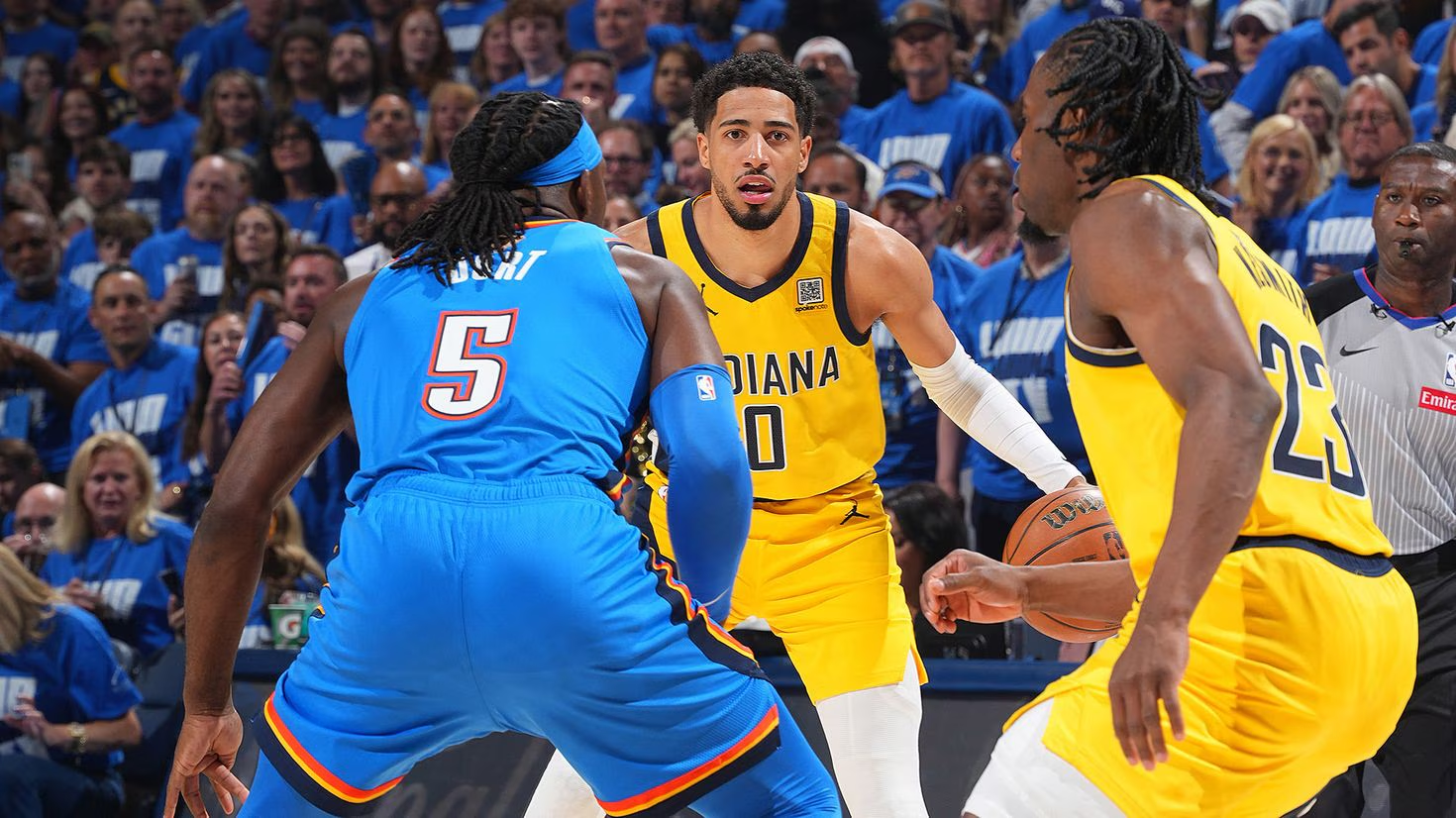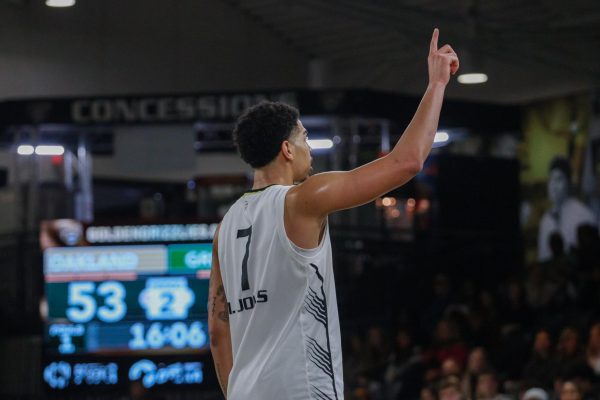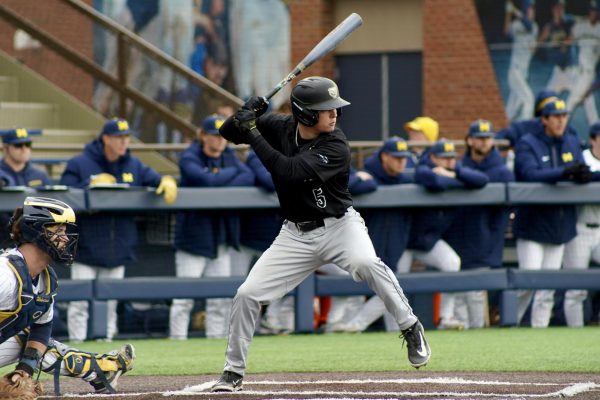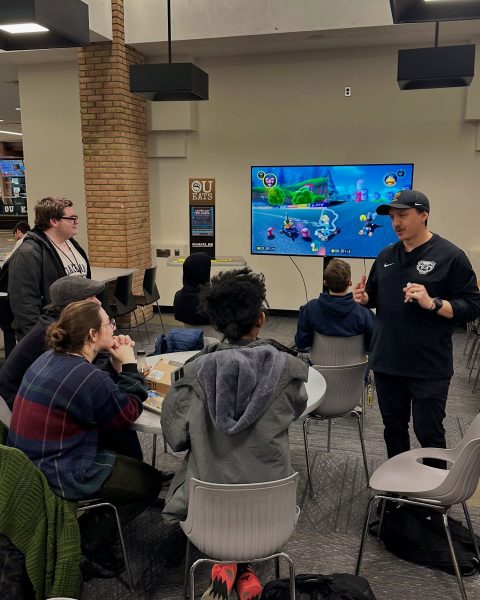Loyalty has become undervalued in sports
Bo Schembechler. Dean Smith. Joe Paterno. John Wooden.
When sports fans hear these names, thoughts of the schools they coach are immediately conjured up thanks to decades of affiliation.
Right on our very campus, we have someone whose longevity matches these coaching legends.
In his 27 years as head coach of the Oakland University men’s basketball team, Greg Kampe has bridged the gap from Division II to Division I collegiate athletics. Of all current Division I coaches, Kampe has the fifth-longest active tenure.
In the early years of Division I, there were good and bad times, but Kampe was there throughout.
His commitment to not only the basketball program, but the university as a whole, should be commended and respected, as it has become a rarity.
In recent years, loyalty between head coaches and athletic programs has largely deteriorated. News of coaches leaving various universities after just a handful of years is constantly a hot topic on ESPN and the subject of countless debates and newspaper columns.
As a recruit looking to attend a university, this change in the culture of coaching makes choosing a program increasingly more difficult. The likelihood of being coached by the same person for your entire collegiate career has become a guessing game.
Head coaches visit recruits at their homes or have them come to the school, making plenty of promises along the way. With visions of conference and national titles in their heads, recruits sign their letters of intent with the idea of four years of service to a head coach of their choosing.
Too often are those commitments broken, however, and it’s not always by the players.
When a coach leaves a school for the proverbial greener grass on the other side, they generally suffer no real consequences, besides maybe a little scorn from the fans.
Players, however, will lose a year of eligibility if they want to transfer to another Division I school.
There have been arguments in recent years about whether players should be allowed to leave with the coaches who recruited them and not lose that year of playing time. I find it hard not to side with the players — they aren’t being paid to play, and should therefore be allowed to choose their collegiate destiny without being punished.
Where legends like Bear Bryant, Mike Krzyzewski and Jim Boeheim used to embody their respective programs, the newest class of coaches, the likes of Lane Kiffin, John Calipari and Bobby Petrino, tend to seek the biggest paydays at the expense of the athletes.
Job turnover in terms of college football coaches seems to be even more prevalent, especially in recent seasons. Just in the past few months, the debacle involving the University of Michigan coaching position after Rich Rodriguez’s dismissal overshadowed the team itself.
Too often in the sport is the head coach fawned over, while the team itself seems to become an afterthought.
In 2006, Bob Huggins took the job as head basketball coach at Kansas State University. One year later, he left for the same position at the University of West Virginia.
Another prime example of this is the case of Lane Kiffin and his betrayal of the University of Tennessee football program.
Kiffin was hired in December 2008 as the replacement to long-time head coach Philip Fulmer. He arrived at his first press conference promising energy and excitement for a rejuvenated program.
“I’m really looking forward to embracing some of the great traditions at the University of Tennessee,” Kiffin said to the media.
Everything the fans and boosters would want to hear from their head coach, right?
Unfortunately for the Volunteers’ faithful, Kiffin was gone from Knoxville just 14 months later. He was hired to be the next coach at the University of Southern California just a day after announcing his resignation from Tennessee in January 2010.
At his farewell press conference at UT, he mentioned that Southern California was “the only place I would have left (Tennessee) to go to.”
Kiffin’s expressed loyalty to the school was completely fake. Unfortunately for Tennessee fans, they wasted a year of football on a man who cut his losses and fled at the first opportunity.
One would hope that this disturbing and unfortunate trend of coaches leaving programs after brief periods of time will be short-lived.






